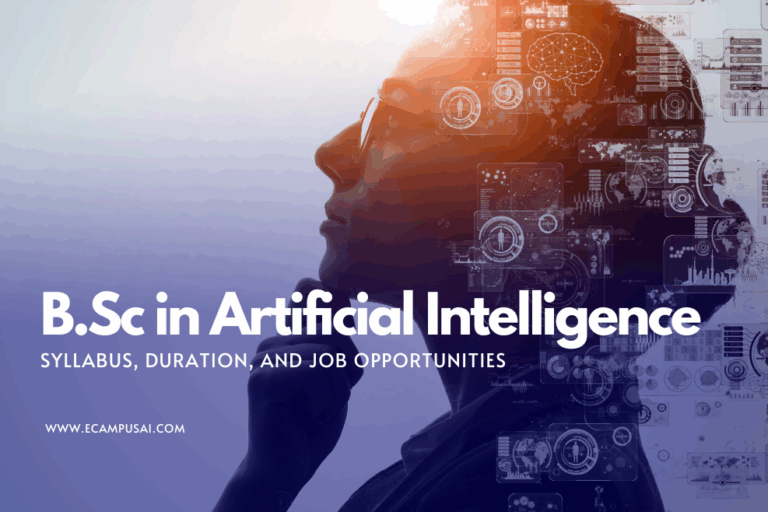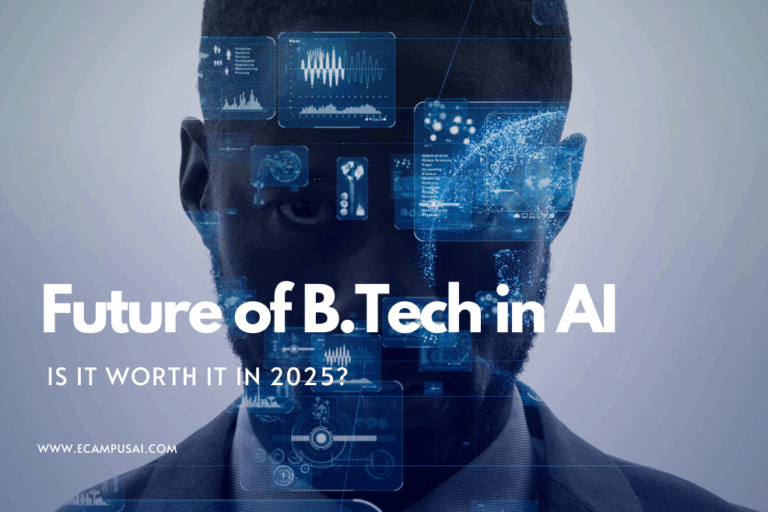MBA in Artificial Intelligence & Data Analytics – Who Should Choose This?
An MBA in Artificial Intelligence and Data Analytics combines professional knowledge with technical expertise, leading future leaders ahead of the data revolution. AI changes the way to make decisions and promote the development of industries. Data analysis is necessary for different aspects, from understanding customers’ behavior to improving operating efficiency. With the increasing demand for skilled data decisions, MBA programs specialized in AI and analysis become increasingly popular. The big question: Who should really consider this specialized degree?
What is an MBA in Artificial Intelligence and Data Analytics?
In a particular field, it occupies the nexus of MBA activities and technology and analyzes. It moves a standard MBA and combines basic trading skills with AI, data analysis, and specialization in machine learning.
Important course field:
- Machine learning and AI basics: Algorithm, automation, and professional application of AI.
- Big data control: How to save, process, and analyze large versions of business data.
- Business Intelligence Solutions: Change of raw data into insight that informs the company’s strategy.
- AI strategy and implementation: Use AI to solve authentic business problems.
- Data morality and governance: To increase innovation with privacy and legal rules.
Unlike a technology-raised degree, it educates the ability to shorten the MBA management, team management, and intelligent business strategies. It is more business-oriented than a master’s in computer science but contains more technical substance than a standard MBA.
Who Should Consider an MBA in Artificial Intelligence and Data Analytics?
Not every professional needs or wants this unique degree. The people who benefit most tend to share a few traits. They want to blend strategy with technology. They’re excited by numbers and comfortable with change. And they see technology not as a threat but as a tool for growth. Let’s look at the different backgrounds that line up well with this MBA.
Aspiring Business Leaders and Managers
If you already manage people or aim to, this degree can unlock new doors. The workplace is shifting, and business leaders need to handle more than just sales or budgets. They need to make decisions powered by data and often lead teams of engineers or data pros.
This program helps you:
- Translate AI data into business action steps.
- Lead teams using the latest analytics tools.
- Drive big projects that shape the company’s tech future.
MBA grads with this focus stand ready for digital transformation roles and other leadership paths that blend strategy with data.
Tech Professionals Wanting Leadership Roles
Engineers, IT analysts, and data scientists often want to move up the ladder. Pure tech skills are just one piece. Today’s leaders need to talk finance, growth, and people management—not just code.
An MBA in Artificial Intelligence and Data Analytics helps tech pros:
- Speak the language of business leaders.
- Shift from building tools to using them for strategic value.
- Qualify for director or executive roles guiding a company’s tech vision.
Bridging the gap between technical know-how and high-level business thinking can speed up that career jump.
Entrepreneurs and Start-Up Enthusiasts
Starting a business? The stakes are even higher in tech. You need to spot market trends, shape products that harness AI, and pitch to investors who love data-backed visions.
Entrepreneurs with this MBA:
- Build products using real AI insights, not just buzzwords.
- Navigate start-up environments where both fast decisions and strong data skills matter.
- Wear many hats—from product manager to data strategist—without missing a beat.
This mix of business and smart tech thinking is a game plan for innovators with big ambitions.
Potential Career Paths After Graduation
Graduates walk out with solid business grounding, a working knowledge of AI, and data strategy chops. The demand for this mix of skills keeps climbing in both global corporations and startups.
Popular roles for graduates include:
| Role | What You’ll Do | Where You’ll Work |
|---|---|---|
| AI Project Manager | Lead AI projects from idea through launch | Tech firms, consultancies |
| Chief Data Officer | Oversee company data use and data teams | Corporations, banks |
| Analytics Lead | Turn data patterns into winning business moves | Retail, finance, health |
| Business Intelligence Consultant | Advise companies on strategy using analytics | Consulting firms |
| Digital Strategy Director | Shape digital plans using the latest AI tools | Start-ups, enterprises |
Salary Trends:
Salaries for these roles often start in the six figures, with rapid growth for proven leaders. AI and analytics management roles top many industry “most in-demand” lists. Although salaries depend on experience, industry, and geography, these roles bring strong earning potential and career security.
Conclusion
An MBA in Artificial Intelligence and Data Analytics suits strivers from many backgrounds. It’s right for leaders planning to guide tech-driven teams, IT professionals eyeing senior roles, or entrepreneurs needing more than intuition to shape their ventures. If you care about both business and technology, this degree anchors your place in a world where smart data drives every move.
Also Read: Future of B.Tech in AI – Is It Worth It in 2025?
Frequently Asked Questions
1. Who should pursue an MBA in Artificial Intelligence & Data Analytics?
Business managers, tech graduates, entrepreneurs, career shifters, and fresh graduates aiming for data-driven leadership roles.
2. What is an MBA in Artificial Intelligence & Data Analytics?
It’s a management program combining business strategy with AI, machine learning, and data analytics for future-ready leadership roles.
3. How is this MBA different from a traditional MBA?
Unlike traditional MBAs, it blends business knowledge with AI, analytics, and data-driven decision-making skills.
4. What industries hire MBA graduates in AI & Data Analytics?
Industries like banking, healthcare, retail, e-commerce, IT, logistics, and consulting actively hire these professionals.
5. What are the career opportunities after an MBA in AI and Data Analytics?
Graduates can become AI Project Managers, Chief Data Officers, Analytics Leads, BI Consultants, or Digital Strategy Directors.







